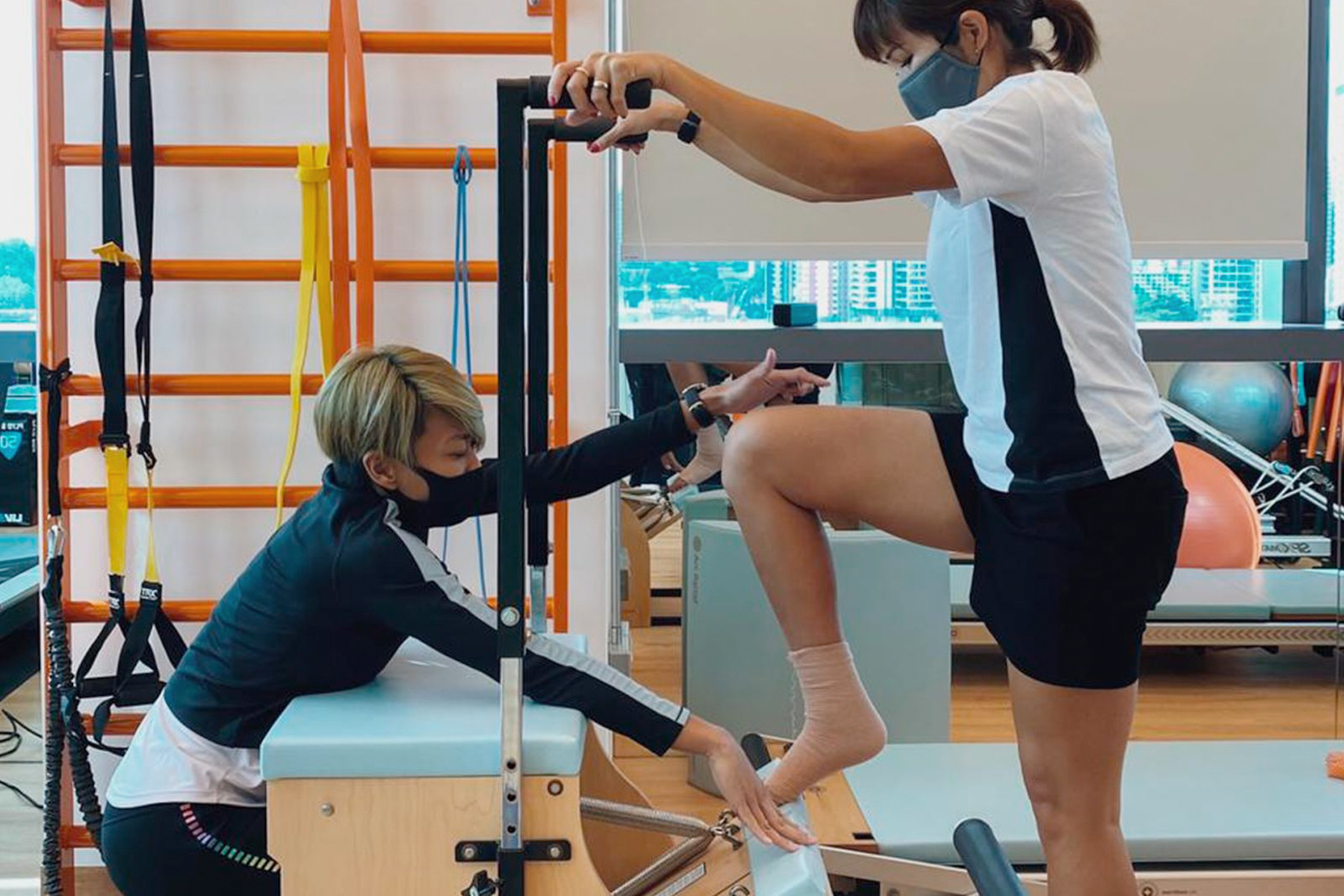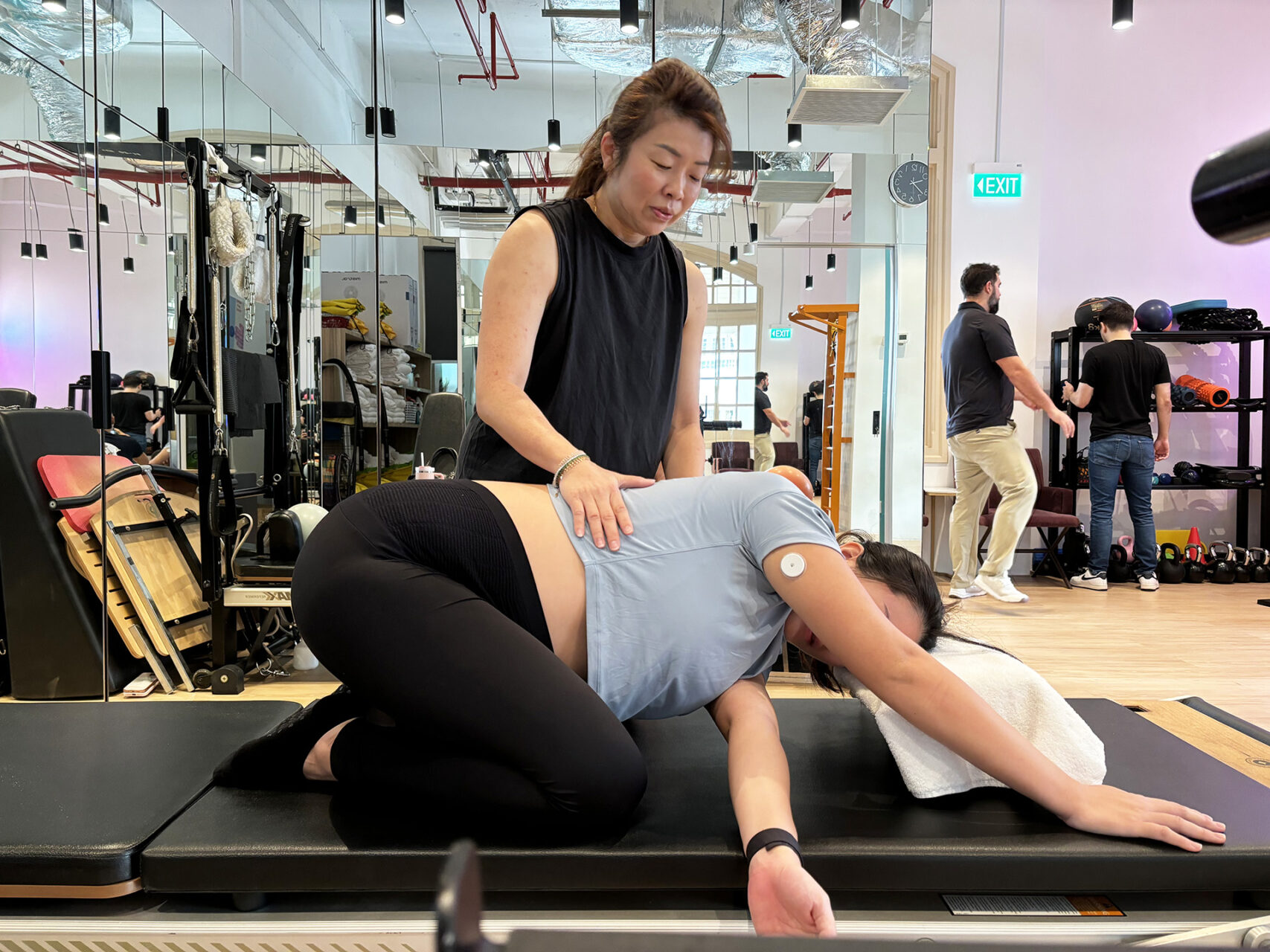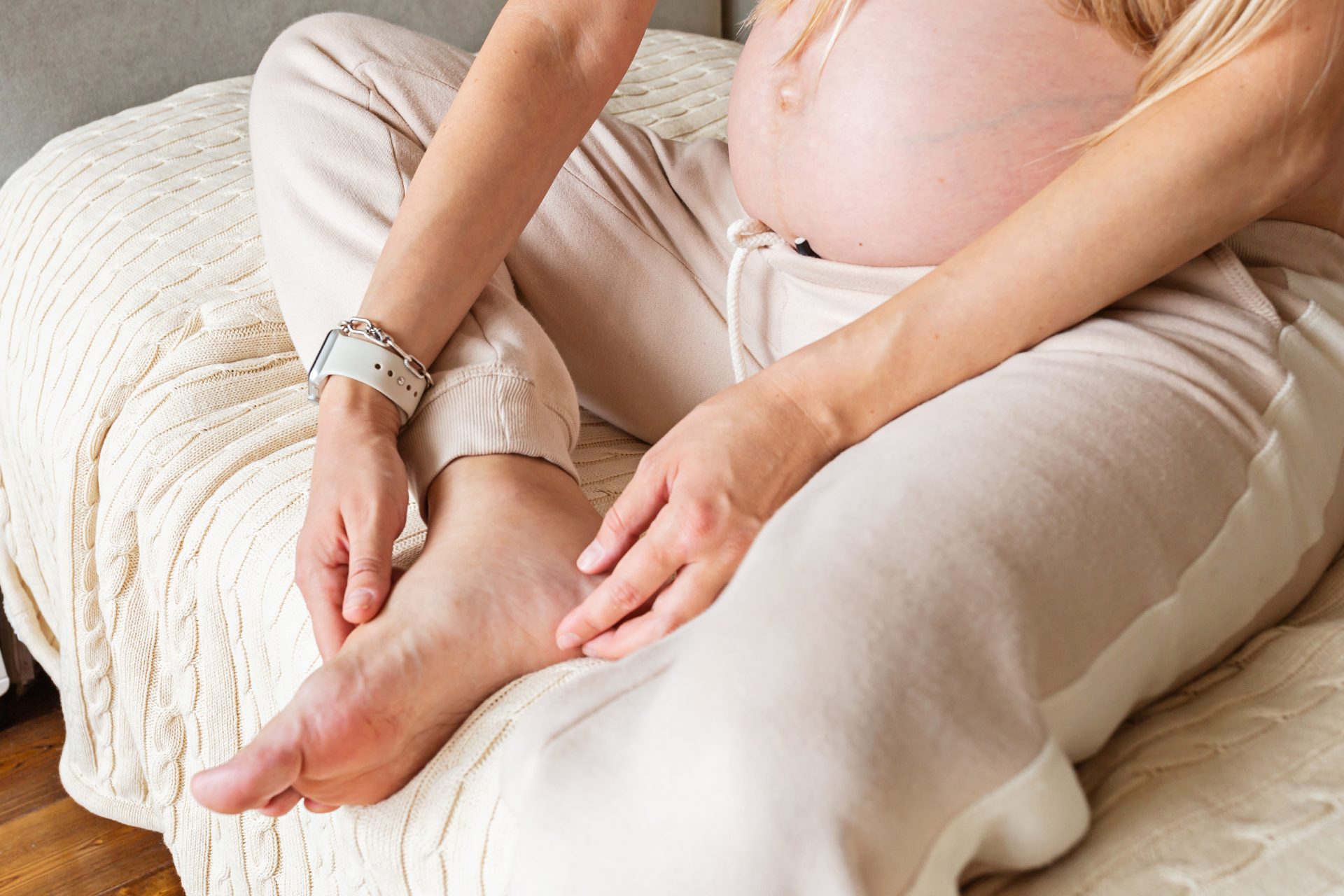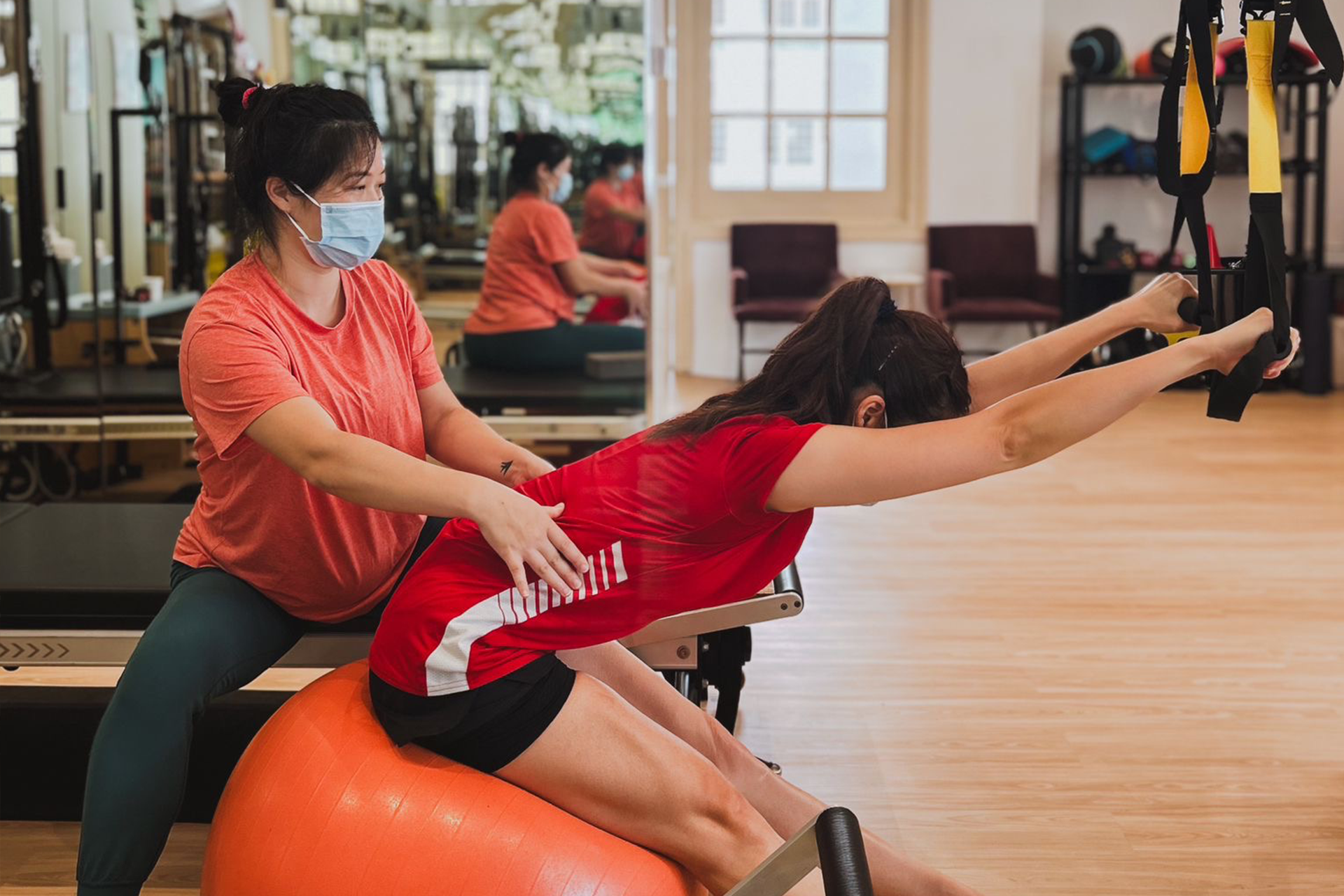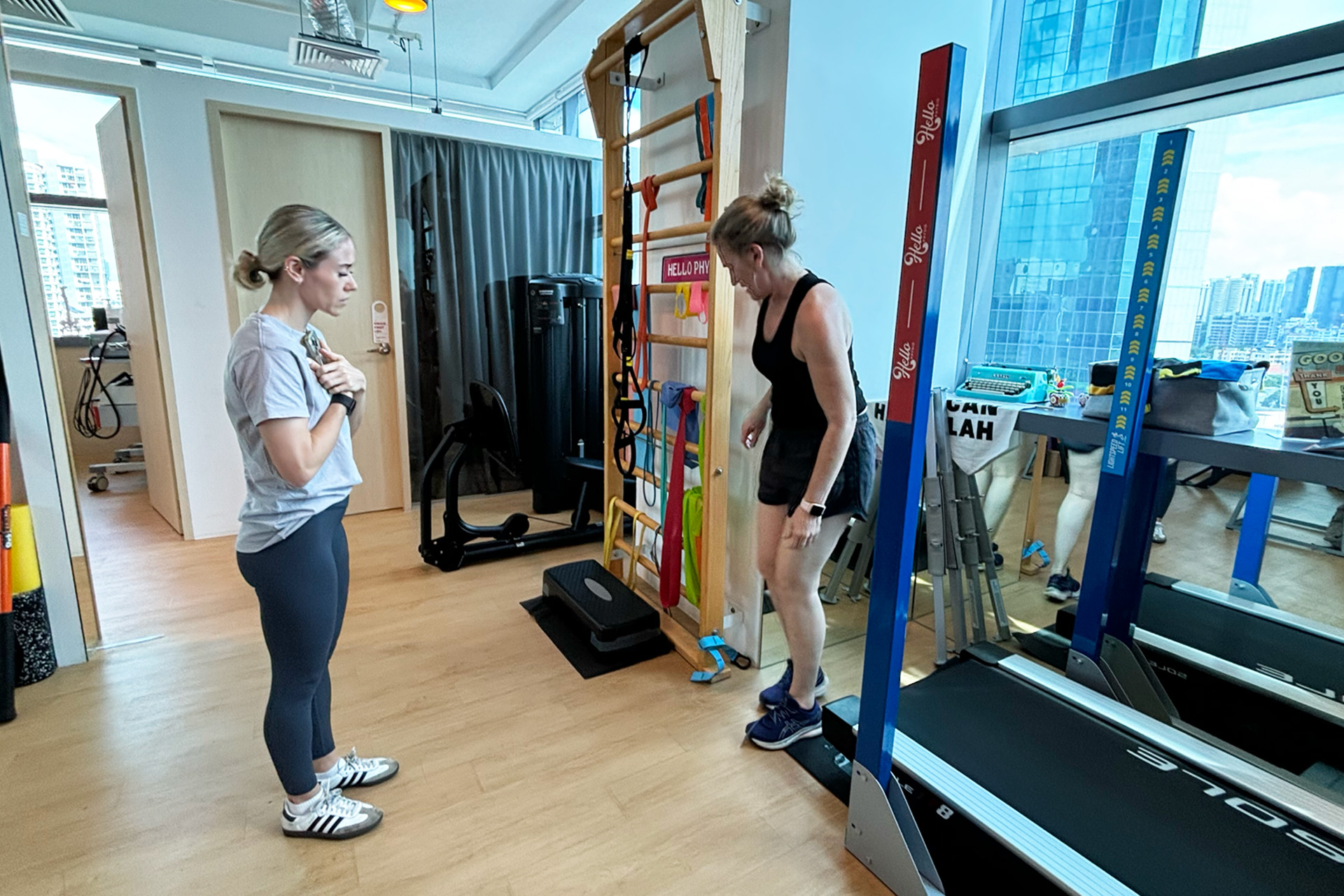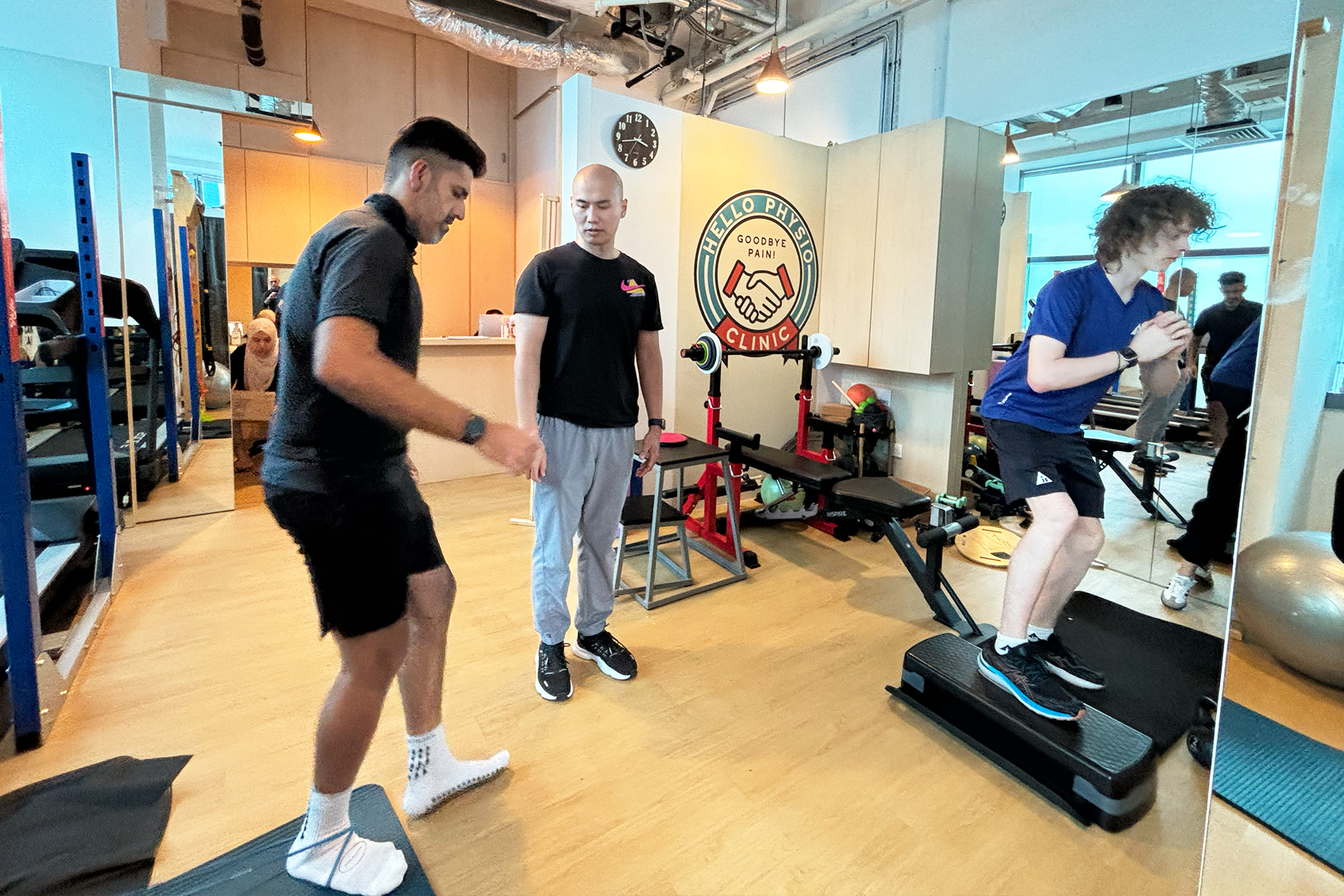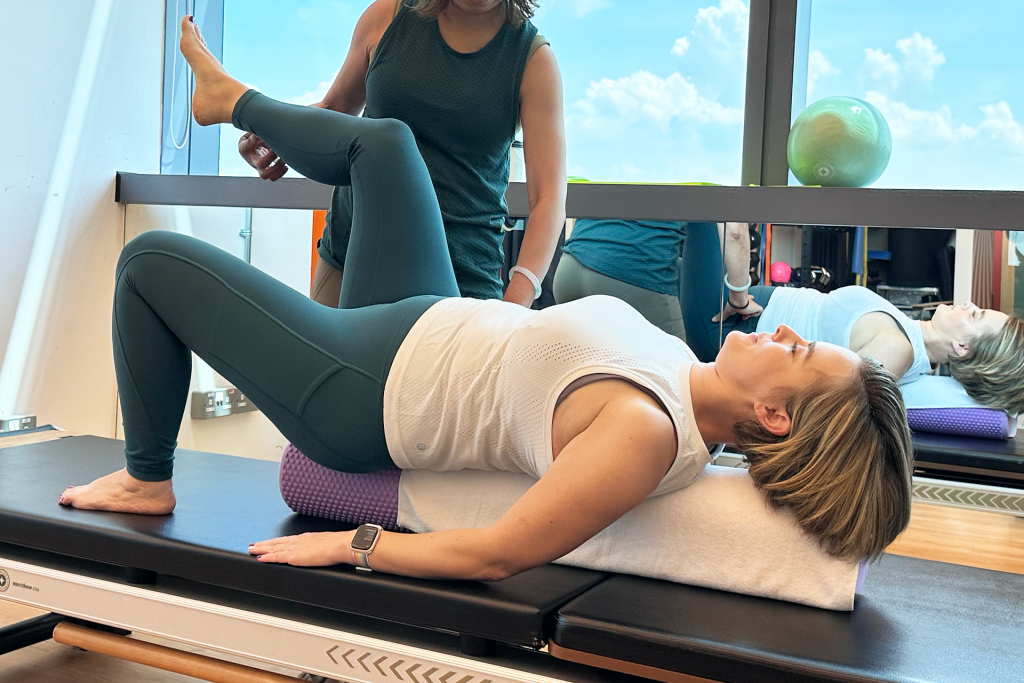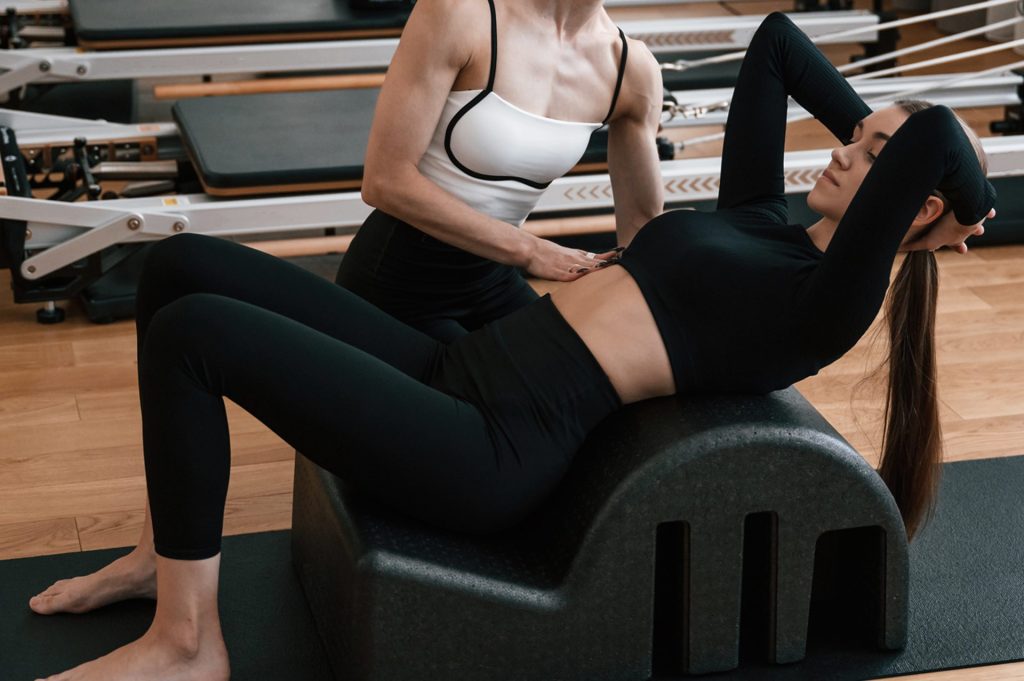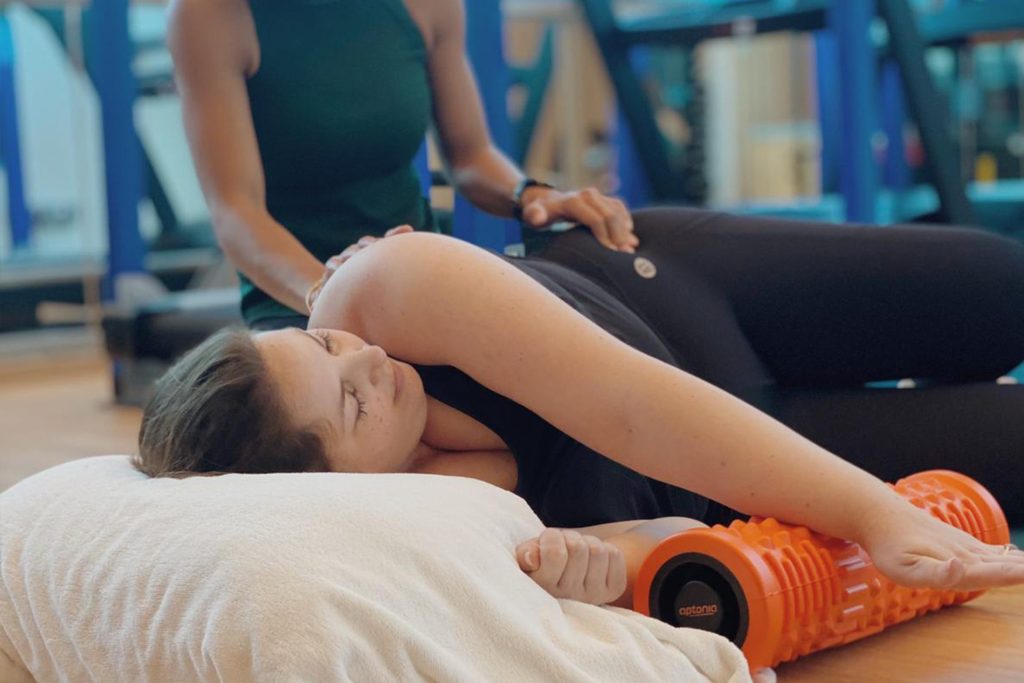Physiotherapy addresses imbalances, improves strength and endurance and supports movement patterns to reduce pain and inflammation. Pilates exercise targets some of the same basic principles to balance core strength, posture and mobility and balance.
When it comes to athletic performance, HelloPhysio’s sports physiotherapy emphasizes prevention through a patient-centered approach to heal, strengthen and boost performance. Injuries can be frustrating, and pain is simply uncomfortable to live with.
As athletes, we’re taught to push through the pain. But this oftentimes leads to additional stress on the body that may lead to injuries taking us away from our favourite physical activities. Athletes who suffer from tight hips, weak core muscles, poor posture, and lack of flexibility may be prone to injuries as they continue to train.
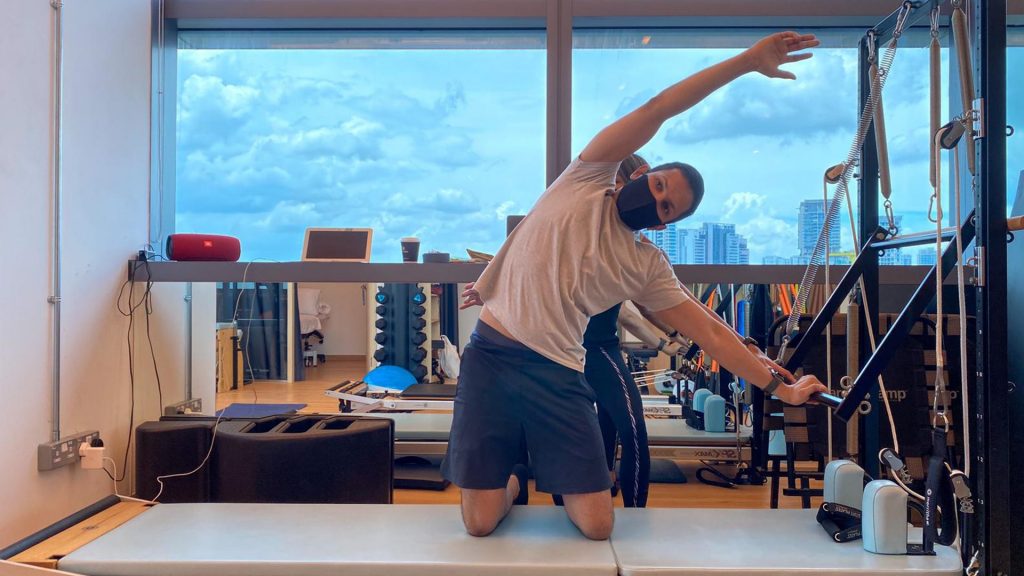
What Is the Role of Pilates Therapy and Physio Exercises in Rehabilitation?
People’s instinctual response to an injury is to stop exercising. This may be the best recourse prior to seeing a physiotherapist but the importance of exercise is often underestimated to help the body’s long-term recovery process. The inflammatory process is the body’s natural response to acute trauma and musculoskeletal disorders.
Moderate, controlled exercises can stimulate the immune system to activate anti-inflammatory cellular processes that are essential to protect and heal damaged tissues. By inducing immunological responses, exercise helps to boost production of, for example, cytokines that help regulate local and systemic inflammation.
Now this doesn’t mean that you should continue to put the same load on your body and work out as you normally would as this can lead to further injuries. This is where Pilates therapy and physiotherapy treatments benefit recovery and healing.
Pilates exercise increases blood flow throughout the body creating a higher rate of circulation for immune cells. Pilates is great for rehabilitation because it focuses on strengthening the muscles around your joints through controlled movements with minimal impact. It helps athletes achieve greater range of motion and flexibility, which are vital especially when it comes to running or other sports activities.
Improved movement patterns in the body benefits injury recovery. The smooth movements of Pilates helps circulate nutrients to the cartilage around joint surfaces to reduce pressure on the joints and tissues that may cause imbalance and excessive load on weak muscles. Pilates addresses these asymmetries in the body by strengthening muscles by dampening down on excessive load on the musculoskeletal system. Following an injury, muscles throughout the body end up compensating to adjust for the injured area creating additional strain on the system.
Pilates is a great adjunct to conventional manual physiotherapy to reduce acute or chronic pain and muscular imbalances. Just as Pilates is designed as an extension of a patient’s treatment plan, physiotherapy at-home exercise programs also encourage patients to continue specific treatments to progress the body’s ability to recover. These exercises using equipment, like a Pilates reformer, improve therapeutic gains to strengthen surrounding muscles and improve flexibility to prevent re-injury.
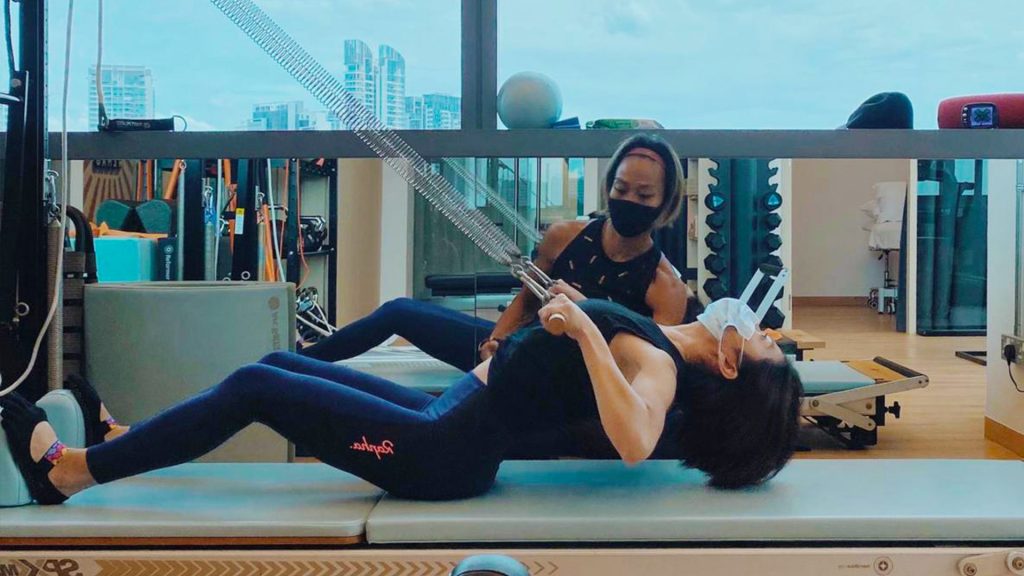
What is the difference between Clinical Pilates and Pilates?
Pilates is a popular rehabilitation technique that has been endorsed by physiotherapists and orthopaedic surgeons post-surgery due to its holistic nature. As a full-body exercise that improves agility, strength, and posture, Pilates meets the needs of a healthy body in mobility, stability and strength. It is a gentle, yet challenging form of exercise that is designed to help rehabilitate and strengthen the body especially following an injury or post-surgical interventions.
Clinical Pilates has evolved as an adjunct therapy to complement physiotherapy . It complements a physiotherapist’s broad evidence-based pathology to create treatment models with reliable outcomes to aid in the recovery and help enhance rehabilitation.
Clinical Pilates complements traditional physiotherapy, as it adapts the range of motion of the kinetic chain to provide an individualized treatment plan that can be tailored to address a specific injury or chronic pain.
The combination of physiotherapy and Clinical Pilates is ideal as both disciplines work together towards enhancing performance and reducing the incidence of injury risk by strengthening weak muscles and improving mobility where needed most.
Working with an experienced physiotherapist, a targeted Clinical Pilates program can give your body a head start by building muscle strength and increasing overall fitness before a surgical procedure to improve the body’s ability to cope better with and recover from surgery, or conditions like diastasis recti after childbirth.
Following surgery, HelloPhysio’s leading physiotherapists work intimately with orthopaedic surgeons to support post-surgical rehabilitation plans to improve treatment outcomes combining Clinical Pilates in Singapore and other leading technologies from the Extracorporeal Magnetotransduction Therapy, INDIBA radiofrequency, Shockwave Therapy, and LightSpeedLift.
HelloPhysio paves the way with both traditional physiotherapy techniques, Clinical Pilates, and the latest adjunct therapies to reduce pain with Pilates, re-establish movement patterns, and activate muscles so that you can return to your daily life faster.
With a team approach to developing treatment plans while at the clinic and exercise therapy at home, HelloPhysio sees a physiotherapist’s role as a catalyst of healing and patient empowerment through education.
Contact us today to arrange a session with a senior physiotherapist to discuss a targeted treatment plan.

